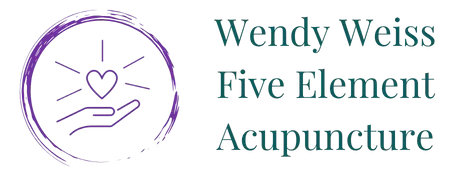Fibromyalgia affects about 3-6% of the world’s population, an estimated 200-400 million people worldwide, with higher numbers among women than men.1 People diagnosed with fibromyalgia experience a wide range of symptoms, including fatigue, pain, stiffness, aches and muscle tenderness, along with sleep disorders and intestinal and bowel troubles.
The diagnosis of fibromyalgia can be confirmed when eleven out of eighteen specific points on the body are tender to pressure. Interestingly, some of these tender points closely correspond to the location of ancient acupuncture points.2
How acupuncture and Chinese medicine can help.
According to
the theories of acupuncture and Chinese medicine, an imbalance in the flow of Qi can create symptoms and signs that reflect a Western diagnosis of fibromyalgia. Qi (pronounced “chee”) is the vital energy that animates and supports the functions of the body. It flows through specific pathways, called meridians,
and provides nourishment
for the entire body.
When Qi is abundant and freely circulating throughout the body, there is health and pain-free living. When Qi becomes “blocked,” or the supply is inadequate, pain, stiffness
and other symptoms related to fibromyalgia can appear.
What does an acupuncturist do?
An acupuncturist will take a complete health history in order to find out where Qi has become blocked, and/or why the amount of Qi within the body has changed. He or she will then develop a treatment plan tailored to address the meridian pathways that are out of balance. The goal of such a plan will be to eliminate visible symptoms, while addressing the root cause(s) and underlying imbalances.
What is out-of-balance?
The body constantly strives to maintain a healthy balance of Qi traveling through the meridian pathways. When the flow of Qi has been disrupted, or the supply of Qi has changed, the body becomes unbalanced and the meridians cannot properly nourish the body. This is when signs and symptoms appear.
Most cases of fibromyalgia fit into the Chinese diagnosis of a Liver, Spleen, and/or Heart disharmony. This does not mean that these organs have a problem, it means that the functions of these organ/meridian pathways according to Chinese medical diagnosis are out of balance.
Liver. The functions related to the Liver organ, according to Chinese medicine, are to control the smooth flow of blood, Qi, and emotions and to nourish the tendons. When the Liver meridian becomes blocked there will be an inadequate supply of blood and Qi flowing throughout the body. The tendons and muscles will not be properly nourished, leading to stiffness and pain. Other symptoms of a blocked Liver are depression, anger, anxiety, and insomnia. A Liver imbalance may be caused by improper diet, stress, deep, unexpressed anger, drugs, and alcohol.
Spleen. The Chinese function of the Spleen is to transform the food that we ingest into Qi and blood. The health of the Spleen is affected by diet, over-concentration, and worry. An unbalanced Spleen can result in fatigue, digestive troubles, muscle stiffness, and pain.
Heart. When there is an insufficient amount of Qi and blood produced by the Spleen, the Heart organ will be affected. The role of the Heart is to pump blood throughout the body. It is also considered to be the home of the Spirit. If the Spleen cannot generate enough blood to nourish the Heart, the Heart Qi does not have enough control to properly house the Spirit. Symptoms can include anxiety, palpitations, insomnia, and emotional unrest.
A study conducted in 2010, suggests that acupuncture treatment is effective in relieving pain and improving quality of life for fibromyalgia patients.3 Not only can Acupuncture treat the pain and discomfort, but it can also address the underlying problems that have caused the imbalance.
In other research, subjects who received acupuncture experienced an overall improvement in fatigue, anxiety and the hypersensitivity associated with fibromyalgia.4
the effective treatment of fibromyalgia. Along with acupuncture, natural herbal formulas, dietary recommendations and calming exercises can also help promote balance and health.
References
- National Fibromyalgia Association.
- http://www.mayoclinic.com/health/fibromyalgia-symptoms/AR00054.
- Itoh K, Kitakoji H. Effects of acupuncture to treat fibromyalgia: A preliminary randomised controlled trial. Chinese Medicine Journal. 2010, 5(1):11.
- Sletten, C., Berger, I., et al., Mayo Clinic Proceedings Report, June 2006.



